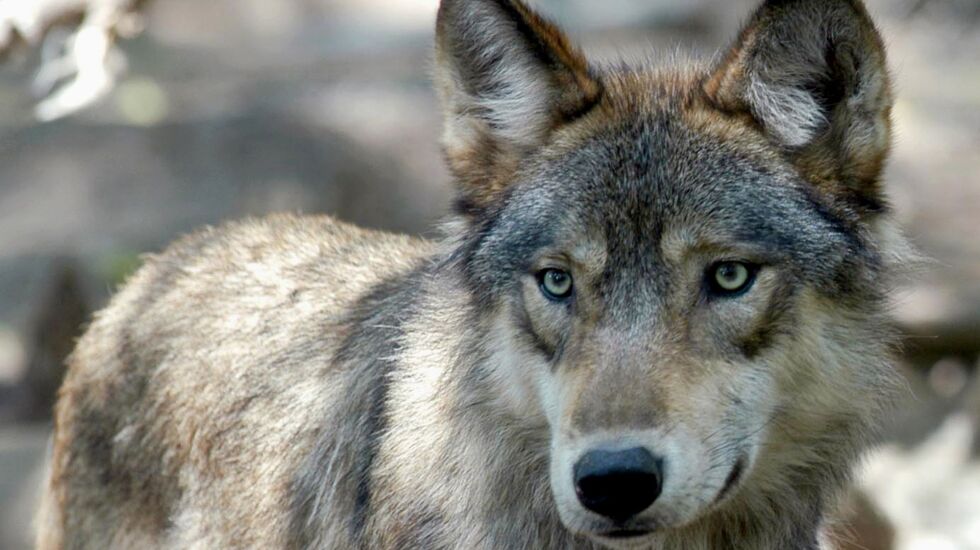
U.S. Sen. Tammy Baldwin, D-Wis., recently introduced and U.S. Sen. Amy Klobuchar, D-Minn., co-sponsored a bill that would force the removal of Great Lakes gray wolves from the Endangered Species Act without scientific or public support.
As tribal members, wildlife advocates and scientists, we are alarmed our representatives are siding with narrow special interests that have harmed our wildlife and ecosystems. This bill dismisses broad support for wolves as evidenced within the peer-reviewed scientific literature and by state agencies.
Tribes are not mentioned among the groups supporting Baldwin’s delisting bill or adequately considered within the bill’s proposed advisory committee to be consulted on wolves’ delisting. In fact, we investigated and can assert that Sen. Baldwin neither contacted nor consulted with any regional Native American tribes or tribal organizations.
The bill continues this disenfranchisement by turning wolves’ management over to states such as Wisconsin, where tribes’ experience evidences how “tribal inclusion” usually plays out: While tribes have supported protections for wolves and opposed recreational killing as part of their treaty rights, state bodies have explicitly called for the violation of tribal rights to half of all hunting permits (which tribes intended to use to protect wolves) and made recreational killing of tribal wolf relatives a main management strategy.
Baldwin’s proposal also dismisses the best-available scientific evidence, which supports stronger protections for wolves to reduce conflicts and challenges states’ ability to protect wolves — a critical ESA criterion for delisting species.
We have already witnessed what happens when wolves are delisted. In Wisconsin, the recent delisting period in 2021 triggered recreational killing of over one-third of Wisconsin wolves, many of them using hounds, in a matter of days. We had to convince a judge to block another hunt schedule for that fall to avoid the complete annihilation of wolves in the state.
In 2016, the Michigan legislature quietly re-passed a law authorizing a wolf hunt by slipping it through a committee without public notice and attaching a provision to prevent Michigan voters from overturning it a third time. As a result, if Michigan wolves are removed from ESA protection, the Michigan DNR can initiate a wolf trophy hunting and trapping season over the strong objections of the state’s citizens.
The ESA has done a fabulous job of stopping wolves from going extinct, but because of lawmakers and agencies catering to narrow interests promoting indiscriminate killing, it has not done a great job at maintaining wolves in their role as apex predators with functional ecological densities.
Recovery for most species is far beyond the bare minimum backstop the ESA provides, but that is the best tool we have at the moment. Large carnivores have critical habitats that are constantly changing with climate change, agriculture and development, and trophy hunting. We need democratically inclusive plans to reflect diverse public interests to protect species while working with the very small number of citizens who experience conflict.
Instead, Baldwin has introduced this bill at the behest of narrow interest groups. The bill’s industry sponsors are limited to five Big Ag and canned hunting groups that have decimated our carnivores and degraded our ecosystems through overgrazing, deregulation of confined animal feeding operations and increased wildlife diseases like chronic wasting disease that thrive in dense canned deer hunt operations, harming not only wildlife but all midwesteners.
On the other hand, science suggests if protected and allowed to thrive, wolves can play a big role in mitigating ecological and environmental problems such as overgrazing.
Baldwin is also caving to the false rhetoric of wolves being an economic issue for ranchers. Wolf predation on domesticated animals is minimal: In 2022, there were fewer than 30 confirmed or probable wolf predation incidents in Wisconsin, out of 3.4 million cows and sheep in the state, where producers have access to both effective non-lethal methods for preventing predation and compensation for predation when it occurs (even of hunting dogs, which are willingly put in danger of clashes with wolves).
It is no surprise that Baldwin’s proposed advisory committee is highly constituted by agencies that cater to agricultural and consumptive interests (e.g., USDA, Wildlife Services, stage agencies), while including only minimal and indirect representation from tribes and no representation of conservation or wildlife advocates.
Baldwin’s bill is the best example of the real problem we have with wolves (and much of wildlife) across the country: Both public agencies and legislators keep catering to narrow interests bent on allowing indiscriminate killing as political favors, despite tribes and the broad public overwhelmingly supporting their protection.
Instead of serving those responsible for imperiling Midwestern wildlife and ecosystems, both Baldwin and Klobuchar should revisit their environmental priorities and promote legislation that will actually address real and urgent environmental issues in the Upper Great Lakes and throughout the Midwest, such as legislation to ban wildlife killing contests, canned hunting, and the use of lead ammunition and tackle; mitigate chronic wasting disease; and promote agency reform.
Francisco J. Santiago-Ávila is science and conservation manager at Project Coyote & The Rewilding Institute. Melissa Smith is executive director of the Great Lakes Wildlife Alliance. Diana Miller is an enrolled tribal member of the Menominee Indian Tribe of Wisconsin.
The Sun-Times welcomes letters to the editor and op-eds. See our guidelines.
The views and opinions expressed by contributors are their own and do not necessarily reflect those of the Chicago Sun-Times or any of its affiliates.







